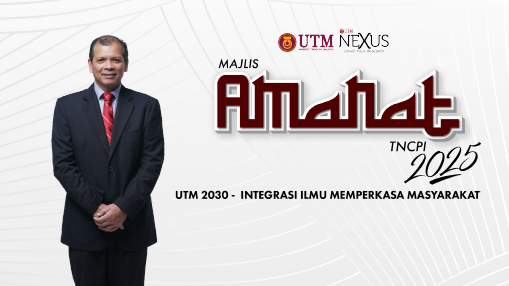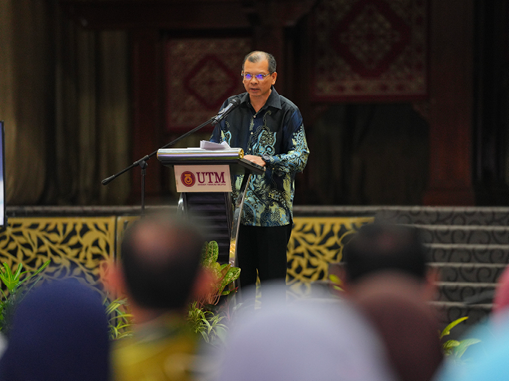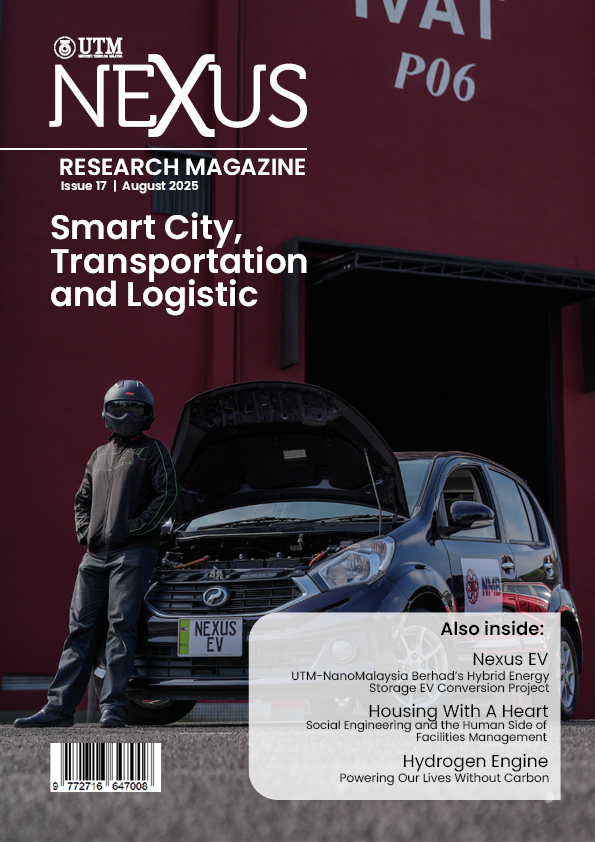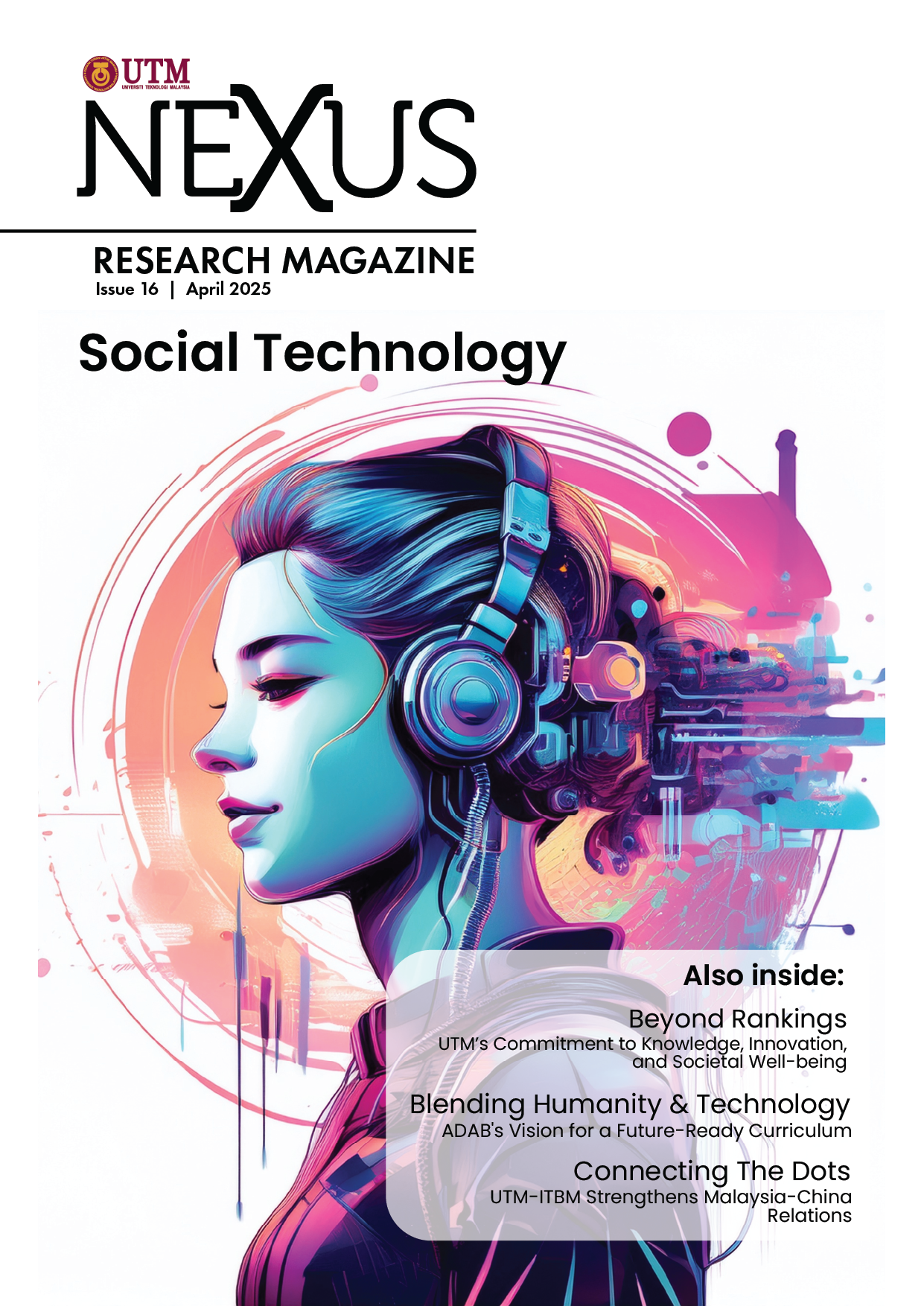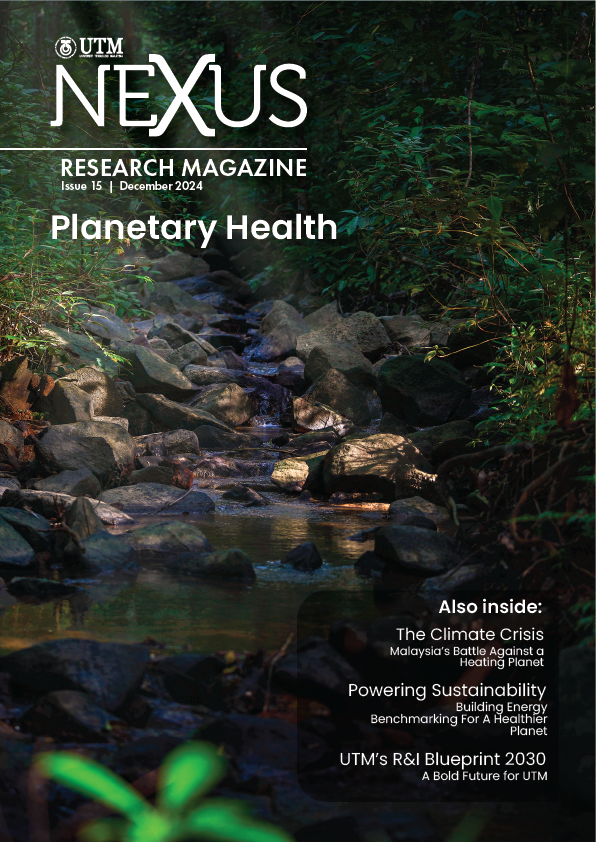Beyond Rankings
UTM’s Commitment to Knowledge, Innovation, and Societal Well-being
by Prof. Dr. Rosli Md Illias
Edited by Mohd Najib Masroom
Assalamualaikum warahmatullahi wabarakatuh and warm greetings to all.
As I reflect on UTM’s journey, I see a university that has evolved significantly over the years, rising through the ranks, achieving remarkable milestones, and continuously redefining itself in an ever-changing academic landscape. Our achievements are commendable. We take great pride in our six-star MyRA rating, our position as the top interdisciplinary research university in Malaysia, and our sustained excellence in fostering international collaborations. However, beyond the accolades and rankings, our true mission lies in the impact we bring to the world through knowledge and innovation.
A university’s success is not defined by its position on global rankings alone. Instead, its true measure lies in the knowledge it produces, the solutions it offers, and the societal progress it catalyzes. While global recognition is important, it should not overshadow our fundamental purpose—to serve humanity through intellectual advancement and impactful research. In other words, the focus should not merely be on achieving high rankings, but on ensuring that our academic and research efforts create meaningful change for society.
UTM has long held a distinguished position as a research-driven university. Our role extends beyond teaching and learning; we are an ecosystem that fosters intellectual growth, generates new ideas, and nurtures future leaders. UTM is not just a place of education—it is a knowledge factory where ideas take shape, a finishing school where professionals are prepared for the real world, a professional institution that cultivates industry-ready graduates, and a cultural hub that fosters innovation and critical thought. It is a place where science meets philosophy, where research meets society, and where innovation transforms lives. If we wish to remain relevant in the global academic sphere, we must strengthen these roles and ensure that UTM stands not just as a beacon of knowledge, but as a force for real-world progress.
Looking at the world’s leading universities, we see that their success is not only built on reputation but also on the impact of their research. Harvard, MIT, Cambridge, and NUS did not achieve their esteemed positions by merely excelling in rankings; they became influential because their research drove economic development, shaped national policies, and solved critical societal challenges. This is the direction UTM must take. We must not just aim to be acknowledged as a top-tier university but to be indispensable to knowledge creation and innovation.
Our vision for 2030 is centered on transforming societal well-being through systemic innovation and integrated knowledge. This principle ensures that our research is holistic, interdisciplinary, and impactful. The future belongs to institutions that break academic silos and create cross-disciplinary solutions. We must integrate science, engineering, social sciences, and humanities to address the world’s most pressing problems.
Our research and innovation priorities reflect this commitment. From sustainable cities and environmental engineering to artificial intelligence, smart mobility, and biomedical advancements, we are focusing on areas that will define the future. But beyond developing groundbreaking technologies, we must also ensure that our research benefits people, businesses, and the nation at large. Research should not only contribute to journal citations—it should create tangible change in industries, communities, and public policies.
Despite our successes, we must also acknowledge the challenges that lie ahead. One of the most pressing issues facing UTM is the decline in postgraduate enrollment. As fewer students choose to pursue advanced research degrees, the future of academic research is at risk. Similarly, we are witnessing a shift among faculty members, with more academics opting for teaching-focused tracks rather than research-focused careers. While teaching remains a crucial part of our university’s mission, we must remember that research is the lifeblood of innovation. Without it, we risk losing our identity as a leading research university.
Funding constraints present another challenge. Public funding for research universities has been declining, making it essential for institutions like UTM to seek alternative sources of financial support. We can no longer rely solely on government grants to sustain our research activities. Instead, we must explore industry collaborations, commercialization opportunities, and international research partnerships. These alternative funding streams will not only secure financial stability for UTM but also ensure that our research remains relevant to real-world applications.
To address these challenges, UTM has introduced several strategic initiatives. We are expanding research grants and scholarships to support postgraduate students and early-career researchers. We are strengthening industry partnerships to ensure that our research aligns with market needs. We are fostering a culture of mentorship where young academics receive the guidance they need to excel in research. Most importantly, we are investing in a holistic approach to research and innovation, where multiple disciplines converge to create sustainable solutions for the world’s challenges.
The future belongs to those who are willing to reinvent themselves. Universities that fail to adapt to change will be left behind. In an era of rapid technological advancement, we must be agile, forward-thinking, and open to new ways of working. The traditional academic model is evolving, and research must no longer be confined to laboratories and scholarly publications. It must engage with society, inform government policies, and drive innovation at every level. We must also embrace digital transformation, using AI, big data, and smart technologies to enhance our research capabilities.
UTM must not only keep up with global trends but lead the way. As we transition from a manufacturing-based economy to an innovation-driven economy, our role as a research university becomes even more crucial. We must cultivate an ecosystem where knowledge is not just created but also applied to solve real-world problems. The researchers and students of today must be equipped with the skills, knowledge, and vision to drive innovation in the years to come.
As I look ahead, I see a UTM that is bold, dynamic, and ready to embrace the future. I see a university that is not just producing research but creating solutions. I see a community that values knowledge not for its prestige, but for its ability to make a difference. This is the UTM we must build together.
Albert Einstein once said, “We cannot solve our problems with the same thinking we used when we created them.” This is a call for transformation. We must not only respond to change but lead it. Our research must be visionary, our innovation must be meaningful, and our education must prepare students for a world that is constantly shifting.
The mission is clear. UTM must not only strive for recognition but for real impact. This is not just my vision—it is our collective responsibility. We are more than a research university. We are architects of the future, innovators of solutions, and guardians of knowledge. Let us move forward with a shared purpose. Let us work together to shape a smarter, more resilient, and more enlightened world.
KERANA TUHAN UNTUK MANUSIA.
